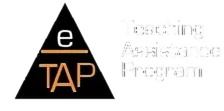Government Standards
Australian Curriculum
Science - Grade 9
Assessment Exam - Australian Curriculum - Level 9 Science| Science Understanding | eTAP Lesson |
|---|---|
| Biological sciences | |
| Multi-cellular organisms rely on coordinated and interdependent internal systems to respond to changes to their environment
ACSSU175 |
Biodiversity |
| Ecosystems consist of communities of interdependent organisms and abiotic components of the environment; matter and energy flow through these systems
ACSSU176 |
Ecosystem Changes |
| Chemical sciences | |
| Ecosystems consist of communities of interdependent organisms and abiotic components of the environment; matter and energy flow through these systems
ACSSU177 |
Stability in an Ecosystem |
| Chemical reactions involve rearranging atoms to form new substances; during a chemical reaction mass is not created or destroyed
ACSSU178 |
The Law of Conservation of Mass |
| Chemical reactions, including combustion and the reactions of acids, are important in both non-living and living systems and involve energy transfer
ACSSU179 |
Reactions and Energy |
| Earth and space sciences | |
| The theory of plate tectonics explains global patterns of geological activity and continental movement
ACSSU180 |
Plate Boundaries How Do Earthquakes Happen and Where? |
| Physical sciences | |
| Energy transfer through different mediums can be explained using wave and particle models
ACSSU182 |
Transporting Energy Heat Flow and Molecule (Atomic) Motion |
| Science as a Human Endeavour | eTAP Lesson |
| Nature and development of science | |
| Scientific understanding, including models and theories, is contestable and is refined over time through a process of review by the scientific community
ACSHE157 |
New Scientific Ideas |
| Advances in scientific understanding often rely on technological advances and are often linked to scientific discoveries
ACSHE158 |
The Scientific Method |
| Use and influence of science | |
| People use scientific knowledge to evaluate whether they accept claims, explanations or predictions, and advances in science can affect people’s lives, including generating new career opportunities
ACSHE160 |
How to Draw and Present Conclusions |
| Values and needs of contemporary society can influence the focus of scientific research
ACSHE228 |
|
| Science Inquiry Skills | eTAP Lesson |
| Questioning and predicting | |
| Formulate questions or hypotheses that can be investigated scientifically
ACSIS164 |
Finding Answers to Questions |
| Planning and conducting | |
| Plan, select and use appropriate investigation types, including field work and laboratory experimentation, to collect reliable data; assess risk and address ethical issues associated with these methods
ACSIS165 |
Information Collection |
| Select and use appropriate equipment, including digital technologies, to collect and record data systematically and accurately
ACSIS166 |
Tools and Technology |
| Processing and analysing data and information | |
| Analyse patterns and trends in data, including describing relationships between variables and identifying inconsistencies
ACSIS169 |
|
| Use knowledge of scientific concepts to draw conclusions that are consistent with evidence
ACSIS170 |
How to Draw and Present Conclusions |
| Evaluating | |
| Evaluate conclusions, including identifying sources of uncertainty and possible alternative explanations, and describe specific ways to improve the quality of the data
ACSIS171 |
Evaluate Claims and Present Arguments |
| Critically analyse the validity of information in primary and secondary sources and evaluate the approaches used to solve problems
ACSIS172 |
Suitable Research Methods |
| Communicating | |
| Communicate scientific ideas and information for a particular purpose, including constructing evidence-based arguments and using appropriate scientific language, conventions and representations
ACSIS174 |
Write Technical Documents |


